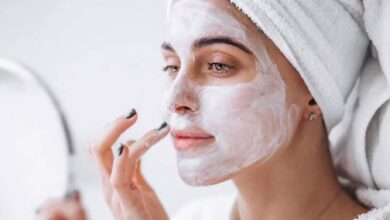Reduce Your Consumption Of These 5 Foods To Avoid Hypertension
Sleep influences many facets of health and is necessary for overall health and wellbeing. The body stores memories, repairs tissues, and adjusts hormones when we sleep, supporting both mental and physical functions. Enough sleep is necessary for a healthy immune system, which strengthens the body’s resistance to illnesses and infections.

Getting enough sleep also enhances mental stability and cognitive function, which promotes attention, productivity, and emotional resilience. On the other hand, chronic sleep deprivation is associated with an increased risk of ailments including obesity, diabetes, heart disease, and depression. Dr. Pushkar A. Shikarkhane, a consultant at Mumbai’s Lilavati Hospital, stressed the need of sleep for general health in an interview with Jagran English.
Dr. Pushkar claims that despite the fact that sleep is one of a living thing’s essential requirements, people today egregiously disregard it, particularly because of scientific advances, artificial light availability, overambition, and money. Screen addiction is becoming into a significant problem, and many people have sleep disturbances due to issues like insect threats and erratic municipal water supplies. It is essential for optimal health to get 7 to 9 hours of sleep per night during physiological hours, which are about from 10:00 p.m. to 7:00 a.m.
What Kind Of Issues Can Be Caused By Not Getting Enough Sleep?
Many health issues, such as high blood pressure, diabetes, heart attacks, strokes, fatty liver leading to cirrhosis, acidity (GERD), increased accident proneness, dementia, Parkinson’s disease, infertility, PCOD, obesity, erectile dysfunction, anxiety, depression, frozen shoulder, allergies, hair loss, and glaucoma, can be brought on by inadequate sleep. Moreover, getting too little sleep raises your risk of infections, including COVID-19.
Did you know that individuals of all ages are becoming more concerned about sleep apnea?
Dr. Pushkar emphasized that individuals of all ages are becoming more concerned about sleep apnea. Due to a decrease in blood oxygen levels, obstructive sleep apnea (OSA), which is defined by repeated episodes of neck choking that impede breathing, results in less than ideal sleep conditions. Excessive drowsiness, snoring, choking during sleep, nighttime urination, unrefreshing sleep, headaches in the morning, exhaustion, dizziness, and difficulty concentrating are all signs of OSA. Due to anatomical abnormalities in the tonsils, nasal passageways, or jaw bones, OSA may start in infancy and cause attention deficit issues, poor academic performance, and obesity.
Diagnosing Obstructive Sleep Apnea
A sleep study is a quick, non-invasive test that may be done at home one night to diagnose OSA. Dr. Pushkar recommended having a sleep test done on those who have symptoms or illnesses that are connected to them.
What Are The Obstructive Sleep Apnea Treatments And Preventive Measures?
‘Airway orthodontic’ therapy or tonsillectomy are examples of proper therapies and early diagnosis in children that are part of OSA prevention. Weight loss, myofunctional exercises, yoga, pranayama, using a mandibular advancement device while sleeping, utilizing a positive airway pressure machine (CPAP), and making sure you get 7 to 9 hours of sleep a night are all advised for adults. Additionally, Dr. Pushkar stressed the need to eat supper early and putting away electronics (TV and cellphone) at least one hour before going to bed.







